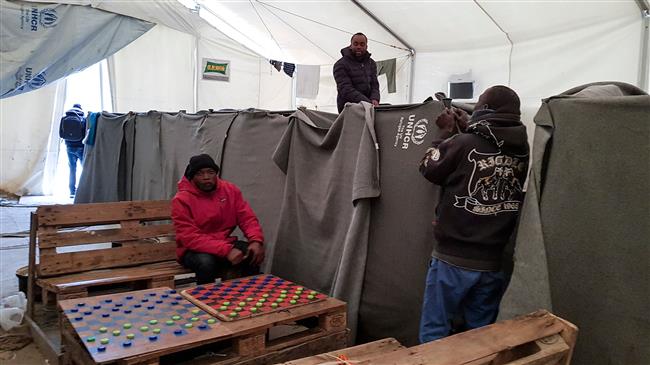UN warns of extensive sexual abuse in Greek refugee centers
The UN says refugees are suffering widespread sexual harassment in Greece, where mixed-gender asylum seekers are forced into overcrowded reception centers under dire conditions.
The United Nations refugee agency (UNHCR) received 622 reports in 2017 from survivors of sexual and gender-based violence in Greece – one-third of whom said they were abused after arriving in the country.
The UNHCR spokeswoman, Cecile Pouilly, said Friday that the number of such cases is probably higher due to reluctance among the refugees to report such abuses out of fear, shame and concerns over likely discrimination, retaliation and stigma.
Pouilly told a press briefing in Geneva that “the actual number of incidents is therefore likely to be much higher than reported,” and that the world body has merely a “very partial picture of what the reality is.”
She further underlined that the debacle was more concerning in the reception and identification centers of Moira and Vathy on Greek islands of Lesbos and Samos, respectively, “where thousands of refugees continue to stay in unsuitable shelter with inadequate security.”
The centers, she noted, are currently holding nearly 5,500 people — double their capacity.
“In these two centers, bathrooms and latrines are no-go zones after dark for women and children,” Pouilly emphasized, adding that “even bathing during the daytime can be dangerous.”
The UNHCR official warned that although the acceleration of refugee transfers to mainland Greece in recent weeks has slightly eased overcrowding, even now “crowded conditions hinder outreach and prevention activities.”

According to Pouilly, in Moira, 30 government medical staff, psychologists and social workers are squeezed together in three rooms where they perform examinations and evaluations with little to no privacy.
UNHCR further called on Greek authorities to take more steps to increase police presence at the refugee centers, reduce overcrowding and improve lighting in toilet and shower areas.
It also stated that female refugees should not be forced to live in close quarters with male ones whom they do not know.
The development came as the influx of refugees in Greece has been drastically slashed since the European Union signed a controversial deal with Turkey in 2016 to send back asylum seekers.
Athens, however, announced last month that it still shouldered a “disproportionate burden” of the EU’s asylum applications in 2017, taking 8.5 percent of the bloc’s total requests.
According to Greek Asylum Service, the nation registered 58,661 applications last year, making it the European country hosting the highest number of asylum seekers per capita.
Source: Presstv





